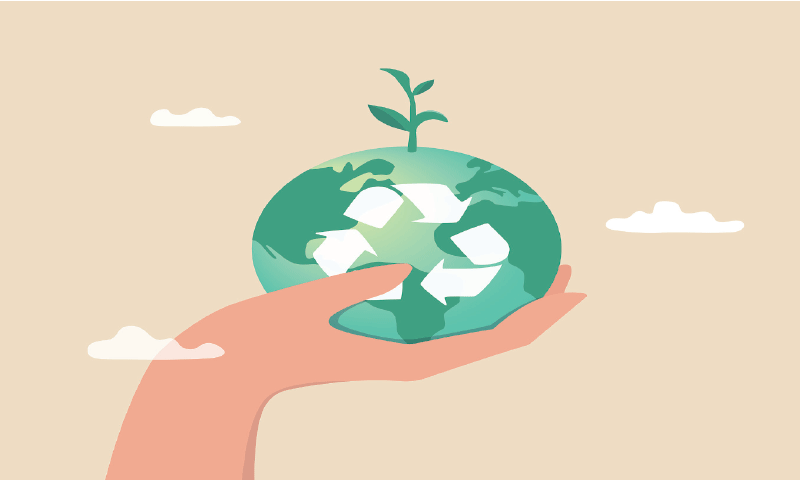Pakistan faces a mounting challenge with plastic waste management.
The country generates approximately 3.9 million tonnes of plastic waste annually, yet only about three per cent is recycled, despite having an estimated recycling potential of 18pc. A significant portion of this waste, around 164,332 tonnes, is transported by the Indus River system to the sea each year, contributing to marine pollution.
This situation underscores the urgency for systemic changes in waste management practices. The current infrastructure struggles with outdated production systems, rigid supply chains, and limited access to green manufacturing technologies. These challenges are compounded by a lack of supportive regulatory frameworks and slow adaptation of industry standards.
To address these issues, there is a pressing need for policy-level incentives that reward sustainable manufacturing practices. Public-private partnerships can play a pivotal role in de-risking early-stage scale-ups, while a centralised innovation framework can bridge the gap between industry, academia, and research and development hubs.
Encouraging circular economy principles, such as recycling, reuse, repurposing, and waste reduction, not merely as compliance measures but as business advantages, is essential.
By redefining waste as a valuable resource and a raw material for new products, energy, or economic growth, businesses can drive both environmental and business success
Some companies are actively investing in closed-loop systems and exploring solutions to repurpose waste materials into durable, eco-friendly products, particularly in non-food applications. Investments in testing laboratories for durable products ensure that innovations meet high-quality standards, accelerating the transition to a circular economy.
Collaboration is key to promoting circularity. By working with suppliers, clients, and cross-industry players, companies can co-create systems that reduce waste, extend product lifecycles, and enable large-scale reuse and recycling. Such partnerships shift the focus from short-term costs to long-term value creation, both environmentally and commercially.
Achieving milestones like Carbon Neutral Certification in key units demonstrates a measurable commitment to reducing emissions. Collaborations with organisations practising regenerative manufacturing allow for the reintroduction of recycled materials without compromising quality. Innovative products, such as recyclable packaging and reusable water bottles, exemplify how sustainability and innovation can go hand in hand.
However, circularity extends beyond products; it involves embedding sustainability into the core of operations. Adopting circular design principles across processes can reduce the use of virgin materials and minimise waste. Real progress requires a shared vision and collective momentum, where industry, government, and society work together to scale sustainable impact.
Established players have a role in supporting climate-tech startups, which often bring innovative ideas but lack access to infrastructure and industrial scaling. By offering access to facilities, technical support, and mentorship, larger companies can help startups transition from prototype to production. These collaborations are strategic investments in the future of the industry.
Strong policy frameworks that promote circular practices, such as responsible segregation at source and waste minimisation incentives, are essential. The private sector must lead through innovation and investment in circular practices, integrating circular design principles and developing sustainable business models.
And when consumers understand the value of recycling and sustainable products, demand for circular solutions will grow. Technology plays a key role, with advanced recycling methods and digital platforms for tracking materials helping to close the loop on product lifecycles.
Policy gaps need urgent attention to support a thriving circular economy. Developing robust waste collection and management systems, along with Extended Producer Responsibility (EPR) regulations, is vital. EPR encourages producers to take responsibility for the entire lifecycle of their products, from design to disposal. However, effective EPR requires comprehensive systems to improve collection, recycling, and disposal processes.
Challenges include a limited understanding of circular economy principles at the government level, supply chain inefficiencies, and an unregulated informal collection sector. The lack of incentives for businesses to transition to circular practices creates financial barriers. Standardising recycling and harmonising regulations across territories and sectors can streamline efforts and facilitate large-scale adoption of circular practices.
To ensure climate innovations are scalable across rural and peri-urban economies, solutions must be inclusive and adaptable to local conditions. These regions offer immense potential for resource recovery and job creation. Establishing scalable infrastructure, such as localised recycling systems and waste-to-energy solutions, aligns with circular practices and ensures that both economic and environmental benefits are realised in every region.
Collaboration with businesses, government bodies, and local organisations can amplify the impact of climate solutions and create synergies that benefit rural areas. Capacity-building and training initiatives empower local economies to adopt and implement advanced recycling technologies, making sustainability a cornerstone of growth for both urban and rural Pakistan.
Viewing waste not as a liability but as an asset requires a shift in industry mindsets. By redefining waste as a valuable resource, a raw material for new products, energy, or economic growth, businesses can drive both environmental and business success.
Integrating this approach reduces environmental footprints and unlocks new value streams. Sharing this mindset and providing tangible examples can inspire others to see waste as an asset that drives growth, sustainability, and profitability.
Envisioning a future where corporates are drivers of systemic change involves leading by example in areas like renewable energy adoption, circular economy models, and digital transformation. The goal is to leave behind a planet where industries thrive responsibly, using technology to optimise processes and reduce environmental footprints. Corporate leaders must recognise that their influence extends beyond profits; they have a moral responsibility to protect our planet. This responsibility must be embedded in every aspect of business, from supply chains to product lifecycles.
The writer is the head of content at a communications agency
Published in Dawn, The Business and Finance Weekly, May 12th, 2025


